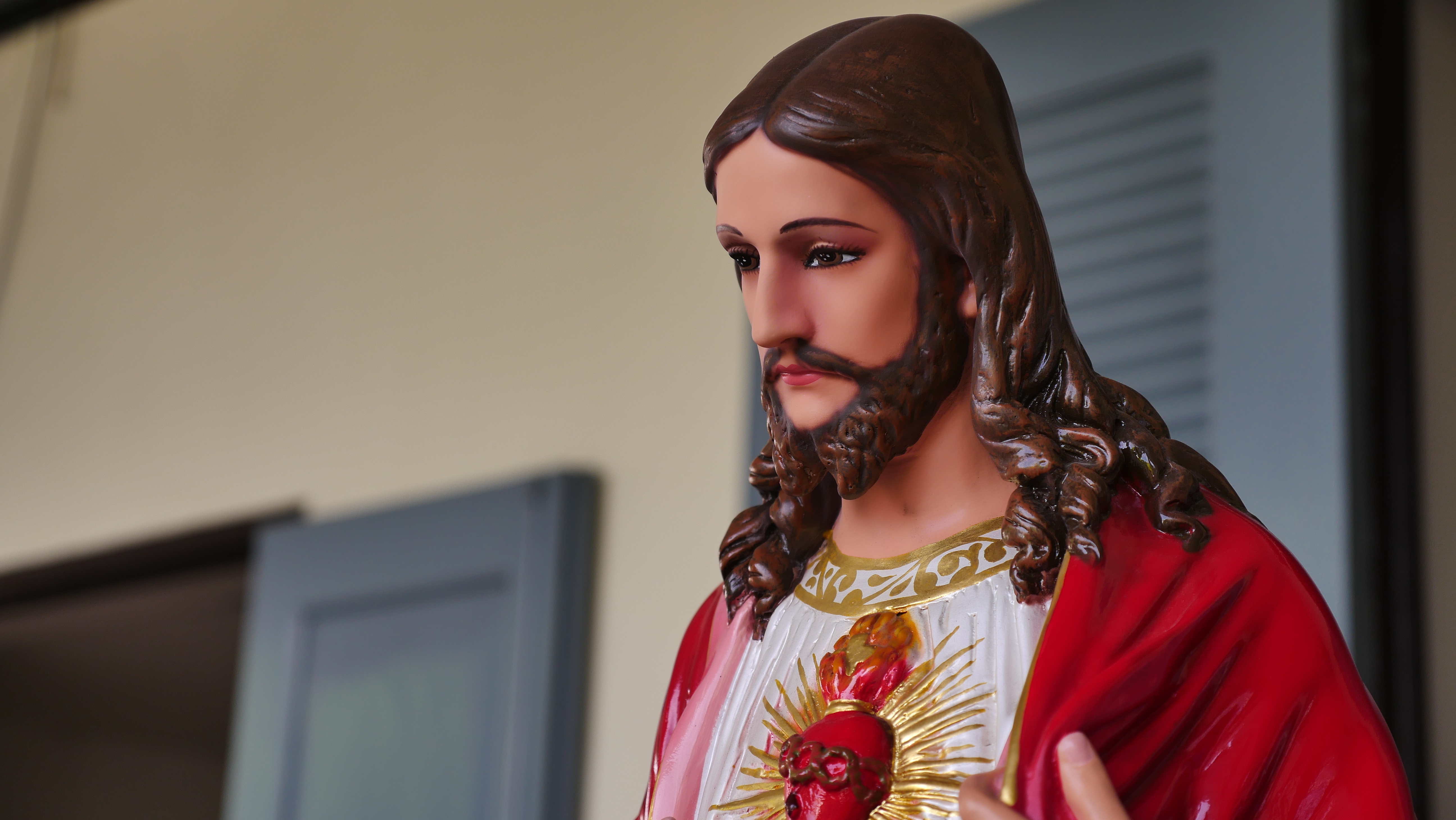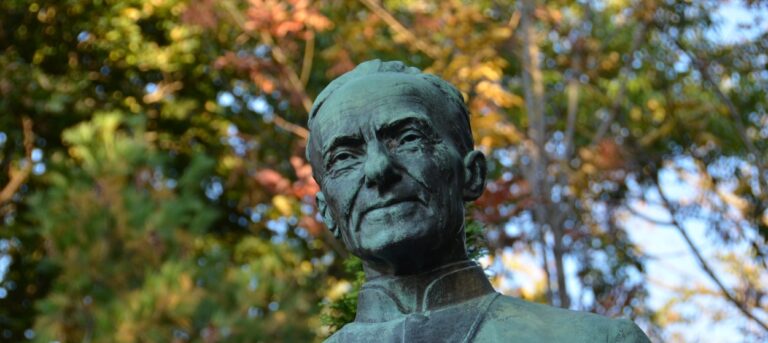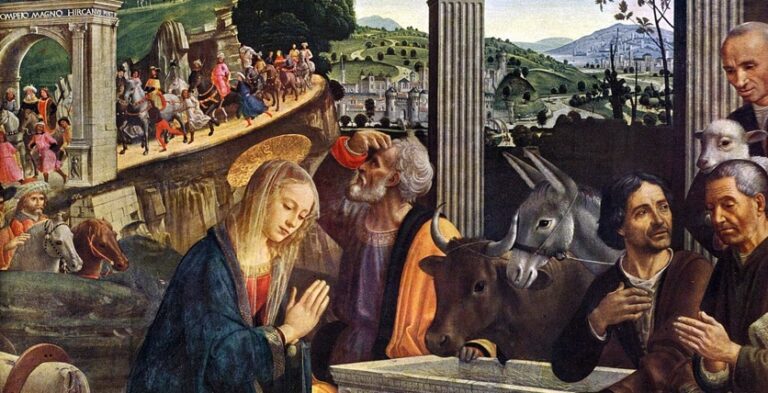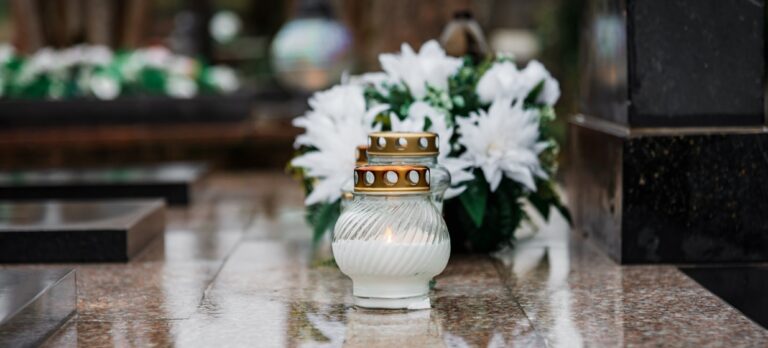
IN PERSONA CHRISTI
In a patriarchal society, to be a father is, by definition, to hold power. Pater is Latin for “father” and “patriarchy,” literally meaning “rule of the fathers.” Ancient Israel was patriarchal in its organization, as is the Catholic Church. In the former, it was biological fatherhood that established authority. In the latter it is ordination.
We should pay particular attention to this today, marked as the World Day of Prayer for Priests. Perhaps such a memorial sounds redundant to you. A friend of mine often asks me and other members of my Jesuit community to pray for her intentions, convinced, as she is, that we possess a special “hotline” to God. She seems to assume that it comes with the position. If that’s the case, why would we require other people to call in on our behalf? But priests are in great need of prayer, not in spite of but, in fact, owing to the power their position gives them.
In the Gospel of Matthew Jesus, in a verbal scourge of some scribes and Pharisees, commands unequivocally, “call no one your father on earth, for you have one Father—the one in heaven” (Matt 23:9). Most Protestants have taken this to heart and would never refer to one of their clergy as Fr. X or Fr. Y. They call their ordained members “ministers” or “pastors” or “elders.” Catholics, on the other hand, feel plenty comfortable not taking Jesus literally here. They see no harm in sharing the title “Father” between God and certain men. After all, it sounds like a term of endearment, making the clerical position more personable and familial.
As pleasant as that might be, problems almost inevitably arise when the title exists within a patriarchy that grants almost exclusive power to its possessors. Jesus forbade the title because he knew what structural power does to people. It too easily turns them into the very scribes and Pharisees he was tongue-lashing. Authority based on position rather than integrity and compassion readily slips into authoritarianism. Jesus came to free people – free them from the domination of sin, of hatred, of pride, of isolation. But it takes two to dominate: the dominator no less than the dominated. His concern was to free them both.
I have lived in countries where Catholicism survives much stronger culturally than it does here in Canada. In such contexts I struggled with the excessive power and authority that the faithful wanted to invest in me by virtue of my ordination. To invest power in someone is to suggest strongly that the person is powerful. That remains unproblematic if said person is not human, as is the case with God. However, history makes it painfully clear that homo sapiens do not react well to large investments of power. Almost invariably, it leads to uncontrollable inflation of ego, privilege, divisions – what in church circles we call clericalism.
Hence the very real need for a World Day of Prayer for Priests in an organization that gives us almost exclusive power. Prayers pleading God that the power invested in Fr. X or Fr. Y does not go to his head and undo him, along with the parish or community he was sent to serve. If the whole Church, its clergy included, does not earnestly pray for the humility of its “Fathers,” these are left to walk the tightrope of temptation stretched over the abyss of self-importance and self-aggrandizement. Once elevated too highly, priests, like most other mortals, find it difficult to serve beings other than themselves. That’s why Jesus counselled against calling them and anyone else “fathers,” wherever being father means wielding control.
Not to be served but to serve. That’s why Jesus came. If Catholic priests are supposed to act in persona Christi (in the person of Christ), they too must come only to serve. Neither the universal Church nor the local parish is theirs. They belong to the Church. They belong to the parish. Jesus never referred to himself as father, because he understood the danger latent in that title. So he called himself the “son of man,” which sounds very ordinary.
That the World Day of Prayer for Priests coincides with the Solemnity of the Sacred Heart is very fitting when we recall how Jesus describes himself: “learn from me; for I am gentle and humble in heart” (Matt 11:28). A heart that wants to give all it has and empower others to do the same. Let’s pray that its generous pulse beat in the heart of all priests and in the heart of the Church, still learning how not to concentrate power in too few of its members to the detriment of all, including the ordained.
O Sacred Heart!
O hole in my chest!
O kenosis!
Every time I check my pulse
I hear echoes of your activity
long since past
light years away.
You—the empty cavity
where the cosmos was conceived.
You—the womb of space
the absence absolute
and at once the omega plenum.
You give every face
every tree
personality
even as you melt into the crowd
and vanish into the forest.
Greg Kennedy SJ is a Jesuit priest working as a spiritual director at the Ignatius Jesuit Centre in Guelph, Ontario. His prayer often takes the form of poetry. Care of creation is central to his vocation. His recent publications include Reupholstered Psalms: Ancient Songs Sung New and Amazing Friendships Between Animals and Saints.



